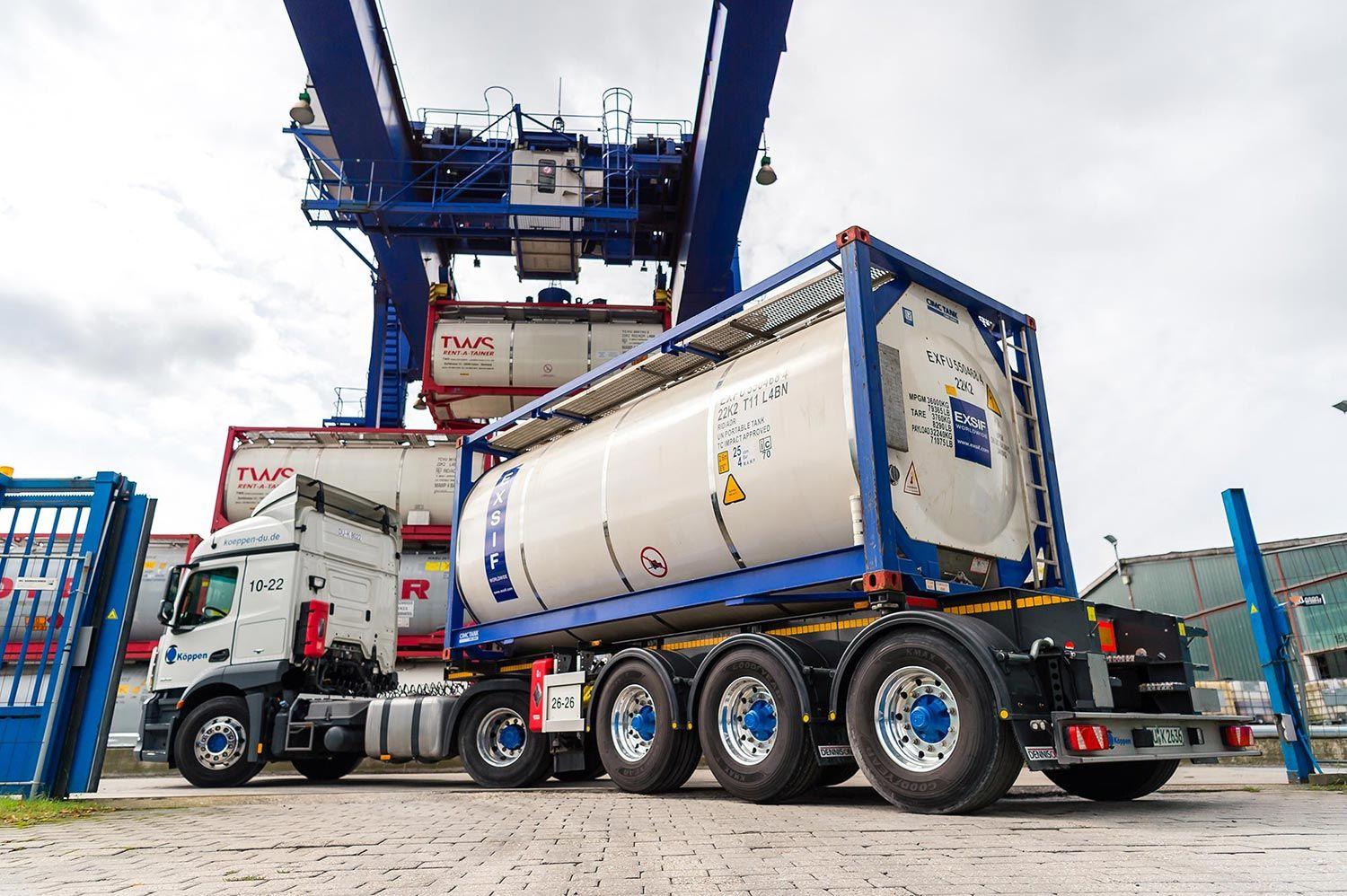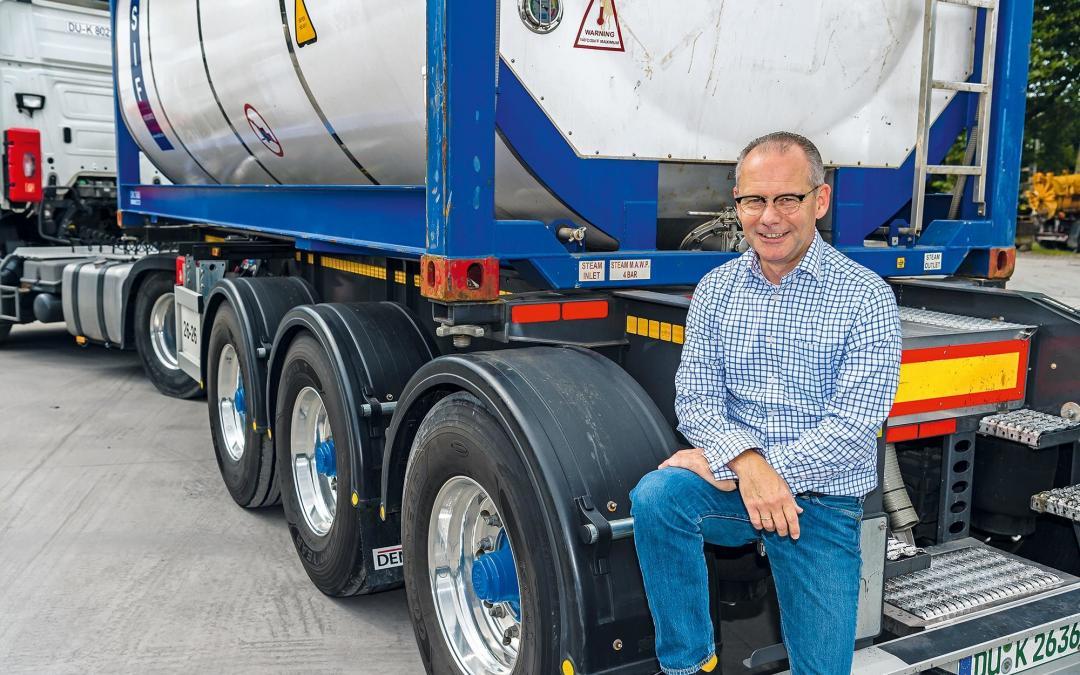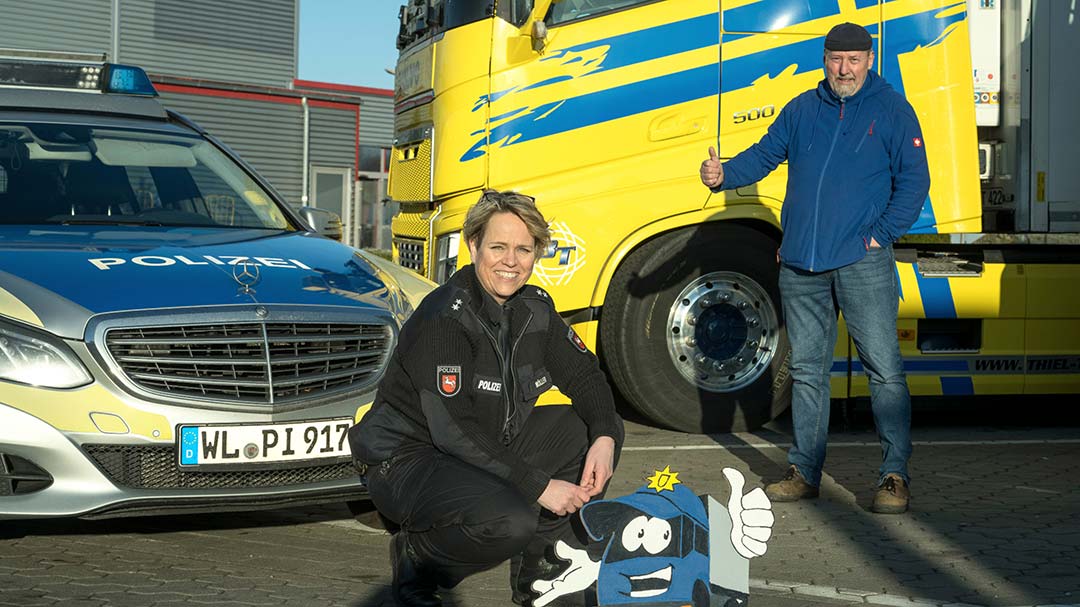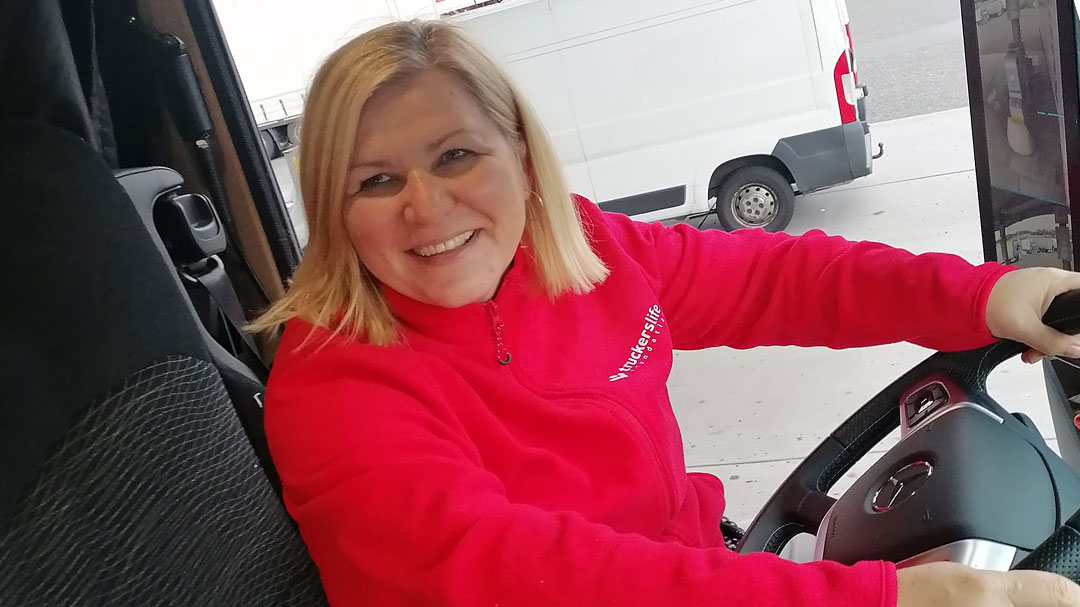Reading time approx. 3 minutes
Text: Oliver Schönfeld
Photos: Oliver Felchner
What kind of drive will the commercial vehicle of the future have? Logistics entrepreneur Jochen Köppen from Duisburg in Germany is looking for answers and has therefore decided to retrofit one-tenth of its fleet starting spring 2019.
Jochen Köppen has decades of professional experience in logistics. Therefore, he knows exactly that in the transport industry, every generation faces new upheavals. The managing director of Köppen GmbH in Duisburg, which specialises in tank container logistics, is certain that the future will be no different in that respect: “When my grandfather was growing up, our haulage company was still using horses, but my father was familiar with diesel trucks from childhood. For the coming generation, alternative drives will be the norm even for heavy goods vehicles.” As an experienced transport specialist he is certain that the time is ripe for the next technological leap – and therefore wants to be one of the pioneers.
In view of the company’s location in the densely populated Rhine-Ruhr region, he is well aware of the growing pressure for change. He continues, “Manufacturing plants and residential areas have co-existed cheek by jowl around the Port of Duisburg and in other industrial centres in the Ruhr region since time immemorial. Increased awareness of sustainability issues and climate protection calls for commercial vehicles with the lowest possible emissions.” And by that, he is referring not only to exhaust emissions – when industry and residential areas are so close to each other, noise can also become a nuisance, and an electric truck is significantly quieter when pulling away than a diesel vehicle.
Cross-border pilot project
But which alternative drive will win out in the commercial vehicle sector? Are electric heavy trucks already suitable for day-to-day fleet operations? Jochen Köppen is not waiting for someone else to come up with the answers; he intends to be one of the drivers of developments – in cooperation with other medium-sized logistics companies. When he heard about a cross-border pilot project at an event hosted by the industry association LogistikCluster NRW, his interest was immediately piqued. Köppen is the only German company collaborating with four Dutch businesses in the Interregio project EGLM (Electric Green Last Mile).
Together they have defined specifications for electric drives in vehicles operating across national borders within the EU. They will also purchase the vehicles together – or, to be more precise, they will buy series-produced diesel tractor units and have them converted. At present, this is still a time-consuming and expensive job, with each vehicle costing around 250,000 euros to convert. The five companies are therefore committed to major investment themselves, even if the EU is subsidising around 50 percent of the total.

In addition, there are still a number of formalities to overcome. “The current ADR dangerous goods regulations do not yet include electric trucks, although they are at least moving in the direction of alternative drives,” explains Jochen Köppen. Questions on this subject remain to be clarified, however, as do issues concerning the charging infrastructure, he says. The pilot vehicles will be equipped with two slow-charger battery systems, each with a power capacity of 44 kilowatt-hours, which can be charged by way of a conventional socket outlet and industrial connector. In addition, a charging facility with a capacity of up to 300 kilowatt hours is to be built at a public charging station.
The Duisburg logistics entrepreneur is looking at the idea of topping up the vehicles’ batteries while goods are being loaded and unloaded on the premises of chemical industry customers. These 30-60 minute recharging sessions are enough to provide sufficient power for a whole day’s terminal operations, but this regime depends on the availability of appropriate infrastructure. Jochen Köppen has already identified a lot of interest within the industry to get involved and, for example, install charging stations. “By working together in this way, logistics companies and their customers can send out a joint message, demonstrating that the industry understands the public’s concerns and is looking for sustainable and environment-friendly transport solutions.“
Project rolles out in 2019
The partners are working hard to finalise the details. The first units for the EGLM project will be delivered to the haulage companies involved by August 2019. Köppen has ordered two electrified tractor units. In addition, he plans to order several LNG vehicles during the year 2019. “Liquefied natural gas is used far more widely in the commercial vehicle sector in the rest of Europe than in Germany,” says Köppen. The two gas-powered vehicles are due to be used on European routes, for example between the ports of Duisburg and Rotterdam. The decisive entrepreneur will therefore shortly be converting almost ten percent of its entire fleet to alternative drives – which will facilitate the collection of sound empirical data and thus actively contribute to shaping the commercial vehicle drive of the future.
Köppen GmbH
The name of Köppen has been synonymous with transport services for more than a century. Köppen GmbH now ranks among the leading tank container service providers in North Rhine-Westphalia. From its premises in Duisburg, the company offers all the ancillary support required for container operations, including cleaning, repairs and maintenance. Specific logistics services connect the chemical production plants on the Rhine and Ruhr with container terminals in the region and sea ports such as Rotterdam and Antwerp. Köppen employs around 170 people and in 2018 generated sales of 14 million euros. Its fleet consists of 54 tractor units and 72 trailers.







